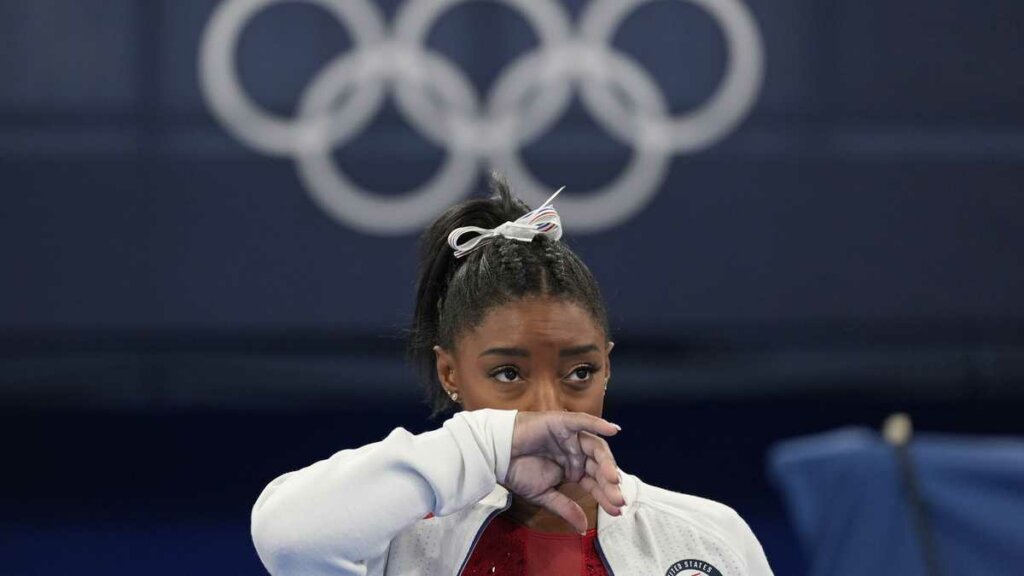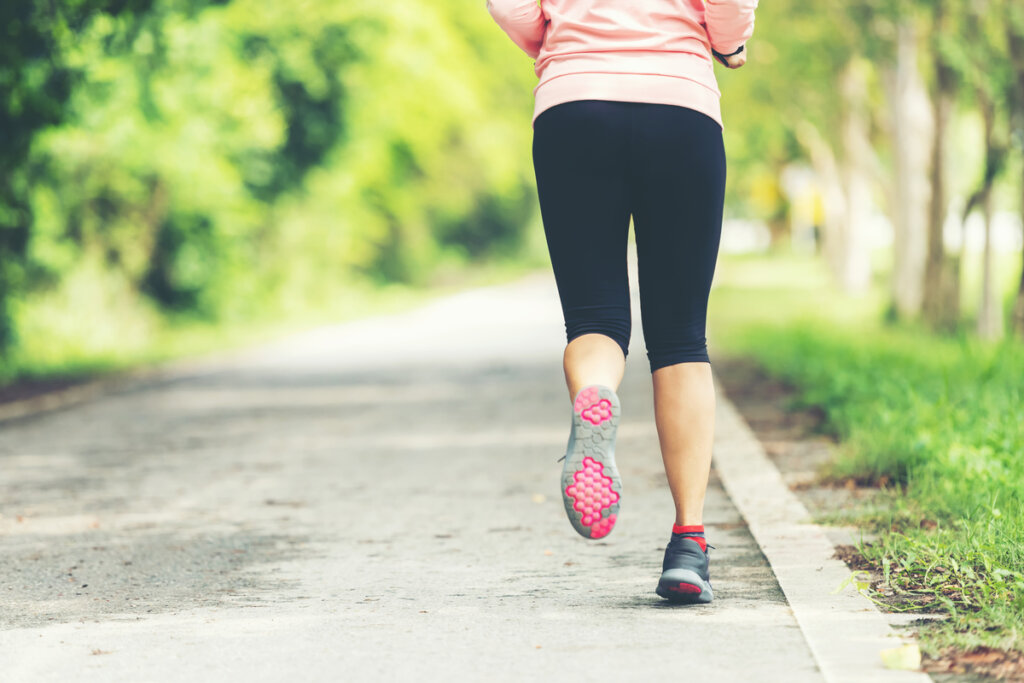Simone Biles: Mental Health is More Important Than Sport


Written and verified by the psychologist Valeria Sabater
“Effort, overcoming, endurance, perseverance, strength, determination, self-control, competitiveness.” Talking about sports, especially elite sports, immediately brings to mind these kinds of qualities. Indeed, the kinds of qualities that every athlete must internalize if they want to succeed. However, in the last Olympics, Simone Biles taught us that accepting your own vulnerability can be just as important.
This subject isn’t new. In fact, a few months ago, Japanese tennis player Naomi Osaka spoke to the media about her recurring bouts of depression and her need to take a break. The same thing happened a few years ago with Michael Phelps, Lewis Hamilton, and Serena Williams. It’s apparent that sometimes it’s important for these kinds of people in the public eye to be able to talk openly about subjects like depression. In this way, they’re able to emerge out of the darkness, where they’ve had to live for decades.
Depression, anxiety, anguish, and even suicidal thoughts. High-performance athletes are more than just their triumphs, their medals, and their achieved records. In fact, behind them are stories of silent despair that no one sees.
What we expect from them is that they inspire us with their ability to excel and achieve. However, what we don’t take into account is that reaching the top sometimes has an inhuman cost.
“I have to do what is right for me and focus on my mental health and not jeopardize my health and well-being.”
-Simone Biles-

Simone Biles, when being number 1 is no longer a priority
One of the people who immediately supported Simone Biles’ words and decision to prioritize her mental health was former gymnast Nadia Comăneci. This famous gymnast made history at the 1976 Olympic Games, by scoring a perfect ten. Indeed, her perfect workout on the bars remains hard to forget to this day. However, there’s something about Nadia that perhaps not everyone knows.
As a matter of fact, little Nadia suffered mistreatment by her coaches, Béla Károlyi and his wife Marta Károlyi. She trained almost without any rest. They controlled everything she ate and beat her if she didn’t perform each exercise perfectly. These were different times, you might say. Furthermore, they were from the Soviet Union.
However, Simone Biles herself was also the victim – along with 300 other young people – of sexual abuse by sports doctor Larry Nassar. In fact, he’s already been tried and sentenced to life imprisonment in Michigan state prison. These are just two examples of what’s often hidden behind the lives of many athletes.
However, there are many more realities.
The unhealthy approach to perfection and success
Shortly before the Tokyo Olympics started, everyone had their sights set on Simone Biles. She was the great hope of the United States and everybody expected great things from her. She’d perform absolutely perfectly. She’d mark a new milestone in gymnastics, they claimed. Furthermore, she’d be a role model for all young black girls, they insisted.
In fact, Simone Biles had the weight of the world on her shoulders. However, that weight proved to be more than she could bear. Indeed, although she was born to excel in the field of gymnastics, she began to feel more insecure than ever. She failed in her exercises and had serious falls, some of which endangered her life. Therefore, her decision to retire was the correct one and she made this clear in her press conference. She stated, “I am much more than my accomplishments, mental health is more important than sport.”
Her words are extremely revealing. That’s because all athletes are trained to be the best, to excel, to be number one. However, teaching them how to lose tends to be forgotten. Nevertheless, it’s just as important. As is knowing themselves, and allowing themselves to feel vulnerable. In fact, it’s not only healthy, but it’s also essential …

Mental health, a stigma of sport until recently
Every elite athlete has a coach, a physio, and a nutritionist. However, not all athletes have a sports psychologist in their day-to-day life. While it’s true that when they have a problem they go to therapy, they don’t all have a professional working alongside them to help them deal with pressure, anxiety, the media, etc.
Every sports psychologist knows that, until recently, the subject of mental health was a taboo subject in this field. However, extensive data exists regarding incidences of depressive disorders, anxiety, drug use, alcohol, and suicide. One example of this is the recent and tragic loss of the young cyclist Kelly Catlin, who declared that she could no longer handle the pressure and her pain.
The University of Melbourne (Australia) conducted research that suggested psychological vulnerability and the risk of it leading to mental health problems among elite athletes is higher than in the general population. Therefore, changes must be made.
It should be remembered that athletes aren’t superheroes. In fact, they’re people like us, with their own individual strengths and weaknesses. Furthermore, they’re trying to improve themselves every day and they sometimes have to deal with silent struggles that can be overwhelming. The sooner we understand this fact, the sooner we’ll be able to create a more compassionate world. A world where we accept the fact that even our sports idols may suffer from depression.
All cited sources were thoroughly reviewed by our team to ensure their quality, reliability, currency, and validity. The bibliography of this article was considered reliable and of academic or scientific accuracy.
- Muhammad, Noor & Marwat, Dr. Mohibullah & Khan, Wasim. (2020). Effect of different types of Anxiety on Athletes Performance; Planning and Managing Strategy to cope with Athletes’ Anxiety.
- Poucher, Zoe & Tamminen, Katherine & Kerr, Gretchen & Cairney, John. (2019). A Commentary on Mental Health Research in Elite Sport. Journal of Applied Sport Psychology. 33. 1-48. 10.1080/10413200.2019.1668496.
- Rice, S. M., Gwyther, K., Santesteban-Echarri, O., Baron, D., Gorczynski, P., Gouttebarge, V., Reardon, C. L., Hitchcock, M. E., Hainline, B., & Purcell, R. (2019). Determinants of anxiety in elite athletes: a systematic review and meta-analysis. British journal of sports medicine, 53(11), 722–730. https://doi.org/10.1136/bjsports-2019-100620
This text is provided for informational purposes only and does not replace consultation with a professional. If in doubt, consult your specialist.








